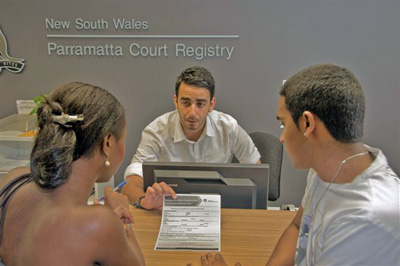Mediation during the court process
Most court cases don't get decided by a judge or magistrate. In fact, of the civil cases (such as cases that do not involve police charges or penalties) that start in court, only about 3% to 5% go to a final court hearing. Most of the remainder are resolved by an agreement made some time after the first court papers are filed. Often that agreement is worked out at mediation or through a negotiation process:

Being sent to mediation by the court
When a case goes to court, one of the things many magistrates and judges will consider is whether the people involved in the dispute have tried to resolve the issues themselves. The court will often send people to mediation before they are allowed to have a court hearing.
Sometimes the court will
suggest that you attend mediation. However, the court may also
order you to attend mediation with CJC or another mediation service. If a court has ordered you to attend mediation and you refuse, you will be in breach of a court order, which may have consequences. If you are concerned about this, you should get legal advice.

Choosing to come to mediation while a case is in court
You can also choose to come to CJC mediation to try to resolve a dispute that is in court at the moment. If you come to an agreement, all the people involved in the court case can ask the court to end the case by agreement so you do not need to go ahead with a hearing. This is very common and is much quicker and cheaper than having a court hearing.
Back to top
Can anything I say at mediation be used in court?
In general, everything you say in mediation and any documents prepared for mediation cannot be shown to the court or talked about outside mediation. This is because mediation is usually 'privileged' (confidential) from the court. The reason mediation is confidential or privileged is so that people can be open and honest with each other when they are discussing matters. They do not need to worry about the court finding out they have admitted to making a mistake, apologising or saying what they would be prepared to accept as a compromise.
Although mediation is usually privileged and confidential from courts, there are some special situations where what people said at mediation or documents prepared for mediation can be shown to the court. These include situations when:
All people at the mediation agree.
The disclosure is necessary to prevent or minimise the danger of injury to any person or damage to any property.
The disclosure is that a child is at risk of significant harm.
The parties have agreed in writing they intend their written agreement to be legally enforceable, in which case the court can be given information about the fact an agreement was reached and what was agreed.
Back to top